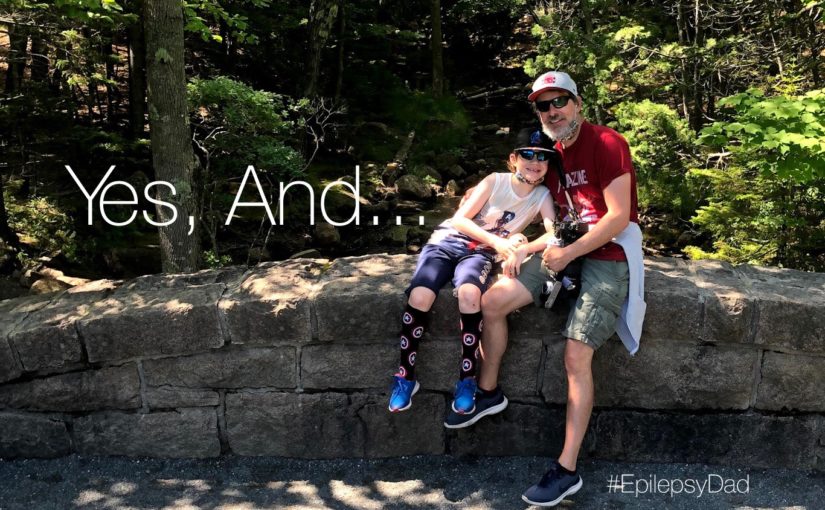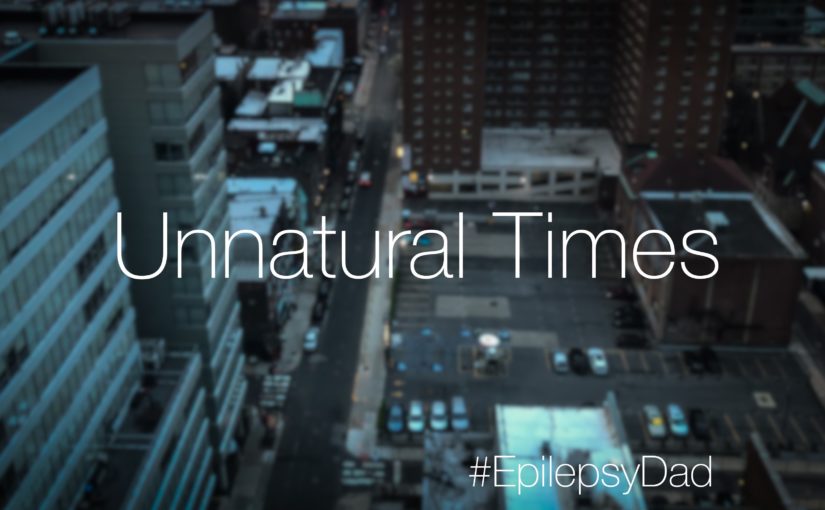A couple we are friends with were pregnant right before the pandemic began. We were excited for them, and my wife was more excited about the opportunity to hold the baby. Then the pandemic happened, and it would be almost two before we saw their son other than at a distance or through a window.
As the world has opened up a bit more, we were able to spend some time with them. Their son was already walking and saying words, and it was wonderful to see how happy he was. It was also wonderful to see how our friends had changed and opened up since their son arrived.
It made me think of how much I had changed, not just when our son was born but also after he was diagnosed with epilepsy and all the challenges that presented.
There are obvious reasons why having children changes us. They are completely dependent on us for everything, and that requires an instant upgrade of our maturity and level of responsibility. We lose some of our selfishness, and our choices become less about us. We start thinking more about the future. Having children takes us out of ourselves and expands the context in which we live.
It’s hard to change patterns that have been with you since you were young. I think most people say they want to be better parents than the ones they had but then wind up doing a lot of the same things our parents did, anyway. Having a child may be an opportunity to do differently, but that doesn’t mean we can or do.
When our son was born, I started on my journey of growth. I thought more about the example I would set for my son and the type of father I wanted to be. But I was a mess, and having him shone a big spotlight on how far I had to go both as a father and as a husband. I second-guessed everything because the weight of the responsibility was unlike anything I had experienced before. That insecurity caused me to go inward and protect myself, which pulled me further away from what I should have been doing for my family.
Eventually, we found our groove, but it felt more like a plateau than a destination. I did change, but just enough to keep things together and to move forward. We did family things, and I was progressing at work and felt like I had figured some of it out, but life would throw in a twist and let me know that I had barely started.
The first seizure was a wake-up call, like an alarm clock, but we were able to hit snooze. The second seizure, though, let us know that it was time to get up. The rapid deterioration of my son’s condition meant that I wouldn’t be able to sleep again.
There were years when it felt like everything was hanging on by a thread, both my son’s health and our family. The challenges we faced were impossibly difficult and not something for which anyone could have been prepared. When things were good, I pretended like they were always good. When things were bad, I disappeared into myself or into work or a dark hole, anywhere to avoid the fear and pain and struggle.
It took time, patience, therapy, and my son stabilizing before I could get out of that hole. I could have lost everything while I was in there. I almost did. But when I climbed out, my wife and my son were still there.
In the past few years, I have done more to become the husband, father, and person that I want to be than I have at any other point in my life. Even going back through old posts, I remember those difficult times and can see a record of my progress. I can look around and see how much closer I am to my wife and how intentional and present I try to be with my son.
But I’m not done. There is more to do. This is a lifelong journey of growth, with the course adjusted at each milestone. Milestones like having a child. Milestones like nearly losing a child. These events are opportunities to grow if we let them. And we should. The stakes are too high to ignore them. And the rewards are too great to ignore.
Welcome the change.

